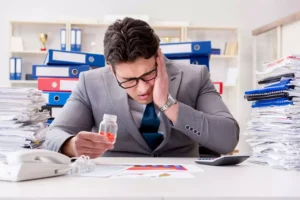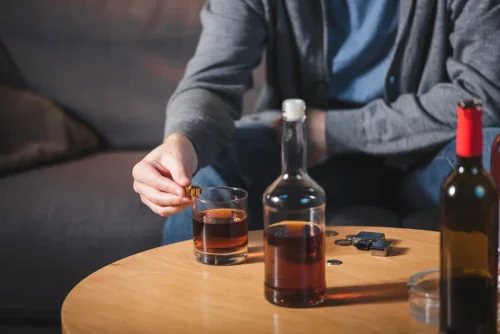
Your healthcare provider can tell you more about the tests they recommend or used for you (or your loved one) and why. Get emergency medical help if you think you’re experiencing symptoms of AWD. You have a better https://ecosoberhouse.com/ chance of making a full recovery if you receive prompt medical attention. The Centers for Disease Control and Prevention defines heavy drinking as 15 drinks a week for men and eight drinks a week for women.

Terms of Service apply.
Some researchers note that these prolonged but lower-intensity symptoms can even persist for 2 or more years — especially symptoms that affect your sleep. AWS is often accompanied by intense cravings to drink and may affect your emotional, cognitive, and physical well-being. If you don’t already have a supportive network, you can make new connections by joining social media communities dedicated to alcohol-free living. Get help if you or someone you love has an alcohol-related problem. American Addiction Centers (AAC) is committed to delivering original, truthful, accurate, unbiased, and medically current information. We strive to create content that is clear, concise, and easy to understand.

How is alcohol withdrawal syndrome treated?
Delirium tremens is a life-threatening form of alcohol withdrawal. This condition is avoidable with professional medical guidance and specialized programs that help people who want to lower their alcohol intake or stop drinking entirely. Roughly every second person living with an alcohol use disorder will develop symptoms due to alcohol withdrawal when drinking is strongly reduced or stopped. If symptoms occur, this usually happens between 6 to 24 hours after the last drink or when a strong reduction in drinking took place.
Symptoms of alcohol withdrawal

A doctor can often diagnose alcohol withdrawal syndrome by taking a person’s medical history and doing a physical exam. A hangover occurs when a person drinks too much alcohol at one time. Alcohol withdrawal syndrome occurs when a person with alcohol use disorder stops or suddenly alcohol withdrawal decreases their alcohol intake. Alcohol withdrawal syndrome is the group of symptoms that can develop when someone with alcohol use disorder suddenly stops drinking. AWS is more common in adults, but children and teenagers who drink excessively may also experience the symptoms.
Enhancing Healthcare Team Outcomes

Some people can be treated at home, but others may need supervised care in a hospital setting to avoid potentially dangerous complications such as seizures. It can be helpful to make a plan ahead of time for how to handle a relapse. For example, some people choose to write a list of reasons why they want to stop drinking alcohol, and revisit the list to remind themselves after a relapse. You may want to speak with a loved one or therapist about a strategy to prevent relapses from happening. This may include medications, therapy, or both and can be offered in a variety of settings, both inpatient, outpatient, or a hybrid model.

Do not sell my personal information Privacy Policy and Terms of Use
Alcohol has what doctors call a depressive effect on your system. It slows down brain function and changes the way your nerves send messages back and forth.
- It’s best to avoid these people during and following withdrawal.
- Identify a family member or friend who you can call on to provide emotional support.
- Others may be more susceptible to intoxication and DTs because of medications they take, health conditions and other factors.
Exercise releases endorphins into your brain, creating natural happy feelings within a person. Not only is exercise one of the most effective natural remedies for alcohol withdrawal, but it’s also good for your self-confidence and recovery. Symptoms occur in three stages, with the first symptoms typically appearing within 8 to 10 hours after your last drink if you have severe AUD. Alcohol withdrawal symptoms can start as early as two hours after your last drink, but it’s most likely to start between six hours to a day after your last drink, according to guidelines from American Family Physician.
- Symptoms outside of the anticipated withdrawal period or resumption of alcohol use also warrants referral to an addiction specialist or inpatient treatment program.
- Alcohol use disorder is a pattern of alcohol use that involves problems controlling your drinking, being preoccupied with alcohol or continuing to use alcohol even when it causes problems.
- Timely assessment and accurate treatment are vital to preventing disease progression.